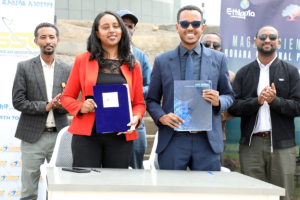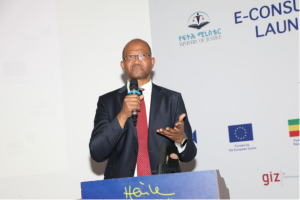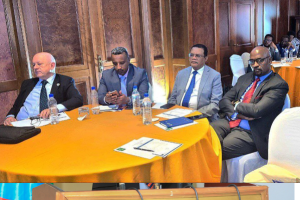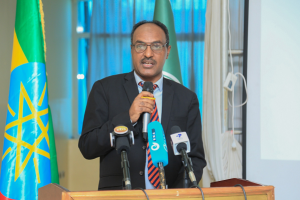
- Calls grow on Israel to resolve disputes
Jerusalem, Israel: – Deir El Sultan Monastery, the only black heritage site in Jerusalem, is facing grave danger putting Ethiopia’s ownership of the heritage at risk.
The sole black monastery has been a bone of contention mainly due to unwarranted claims of ownership from Egypt impeding Ethiopia from carrying out rehabilitation works in the site.
Ethiopia has been calling on the Israeli government to do more as it continues their struggle for recognition and preservation of this significant site.
Abba Gebre Selassie, Megabi at the Monastery expressed grave concerns about the unresolved tensions between the Ethiopian and Egyptian Coptic communities.
In an interview with The Ethiopian Herald, he noted that the situation has worsened over time, attributing the lack of resolution to the Ethiopian government’s strained relations with Israel on the issue. `
While he acknowledged assistance from the Ethiopian ambassador in Israel for temporary concerns, Abba Gebre Selassie stressed the need for high-level involvement from Ethiopian leaders to achieve a lasting resolution.
He warned that without decisive action from the Ethiopian president or prime minister to assert the site’s heritage, the situation could deteriorate further.
The monastery, particularly during Easter celebrations, has become a focal point of conflict. Abba Gebre Selassie recounted instances of Coptic opposition, saying, “They claim, ‘You can’t celebrate here,’ leading to chaos.”
He also highlighted the dilapidated state of the monastery’s buildings, which are no longer habitable. “We urge the Ethiopian government to negotiate with the Israeli authorities, asserting that this property belongs to Ethiopia,” he said. Despite the Israeli government’s recognition of the land’s Ethiopian heritage predating the establishment of Israel, Abba Gebre Selassie criticized its neutrality in diplomatic matters.
He called for an agreement to renovate the monastery, noting that status quo laws prevent both Ethiopian and Egyptian parties from undertaking renovations due to Coptic claims. “Although we lack renovation rights, the Israeli government should have taken action to preserve this site,” he lamented, adding that inadequate services, including electricity, further complicate living conditions.
Belaynesh Zevadia, former Israeli ambassador to Ethiopia and current Director for the South African region at the Israeli Ministry of Foreign Affairs, echoed these sentiments. “Resolving this matter requires collaboration among Israel, Ethiopia, and Egypt,” she stated.
Reflecting on her tenure, she advised Ethiopian officials to engage directly with their Egyptian counterparts, emphasizing the presence of various communities in the area complicates matters, requiring permissions for any developments.
Both current and former Ethiopian prime ministers have recognized the site’s importance, but Belaynesh underscored that Egyptian involvement is crucial for any resolution.
Formerly, during his interview with EPA Former Israeli Ambassador Alelign Admasu also emphasized Israel’s responsibility to preserve heritage sites, noting the friction between the Ethiopian Orthodox Church and the Egyptian Coptic Church regarding Deir El Sultan. He suggested that the governments of Ethiopia and Egypt must convene to address the issue collaboratively.
Ultimately, Israel maintains that any country with heritage sites is responsible for their preservation and must uphold the status quo.
BY EYUEL KIFLU
THE ETHIOPIAN HERALD WEDNESDAY 1 JANUARY 2025





